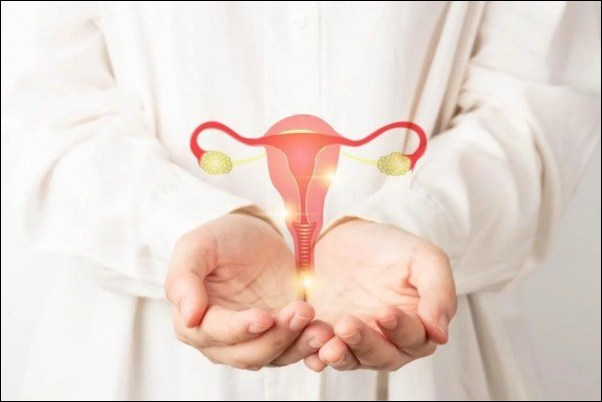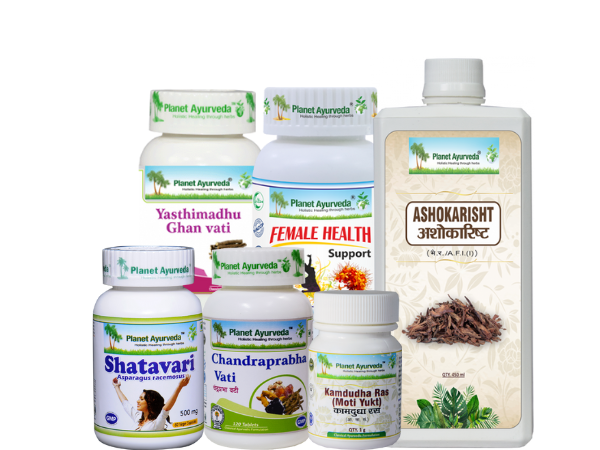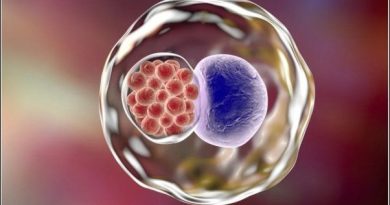Vaginal Atrophy or Genitourinary Syndrome of Menopause- Treatment in Ayurveda
Abstract
Genitourinary syndrome of Menopause describes the menopausal symptoms which do not have only Genital signs but sexual symptoms too, with impaired functions. Menopause is one stage of women’s life that marks the end of reproductive years. After menopause, women cannot become pregnant which is seen between the age of 45-55 years and is a natural biological ageing. Menopause is caused by the loss of ovarian follicles which decline the source of oestrogen level in the blood. The changes in the hormones affect the physical, emotional, and social well-being of the person. It is also known as Climacteric, which includes symptoms such as Hot flashes, Night sweats and vaginal dryness, and Vaginal atrophy (drying and thinning of the tissues of the vagina). In this article, we are going to discuss the various changes and symptoms which we will discuss further in the article.

Introduction
The genitourinary Syndrome of menopause (vaginal atrophy) is mainly affecting people who are transitioning to Menopause. It is seen mainly due to low levels of Oestrogen hormone in the Vulvovaginal and lower urinary tract. 60% of the women suffer from postmenopausal periods. Vaginal atrophy thins the lining of the vagina which gets drier resulting in burning, itching and painful intercourse. Vaginal atrophy makes painful intercourse which leads to distress urinary symptoms, when both the urinary and genital systems are involved it is termed Genitourinary syndrome of Menopause. It is a chronic, progressive syndrome which occurs and various multiple changes are seen occur in the External genitalia, pelvic floor tissue and loss of libido caused due to hypoestrogenism during the menopausal transition. Oestrogen deficiency after menopause occurs in female genital tissues which includes the reduction of collagen and Hyaluronic acid which thins the epithelium and increases the density of connective tissue which further causes a reduction in the elasticity of the vagina, diminishes the lubrication and increases the vulnerability to physical irritation and trauma.
Pathophysiology and Various Anatomical Changes
- The receptors of estrogen are present in the vagina, urethra, trigone of the bladder and on autonomic sensory neurons of the bladder.
- The highest concentration of estrogen receptors is almost active in the menopause period.
- There is a loss of collagen and elastin which alters the smooth muscle cell so increases the connective tissue and leads to thinning of the lining of epithelium which reduces the elasticity.
- This thinning is related to the various changes in the vaginal epithelium linings.
- There are few parabasal cells but during menopause, the parabasal cells increase in number and loss of superficial cells.
Causes
- During Menopause, there is a reduction in the production of Oestrogen in the Ovaries.
- Due to low Oestrogen, the lining of the vagina gets thinner and becomes less stretchy.
- Less estrogen lowers the amount of normal vaginal fluid and various changes in the acid level in the vagina.
There is a drop of estrogen occurs due to
- After menopause
- Surgical removal of both ovaries (Oophorectomy)
- Birth Control Pills
- Pelvic radiation therapy
- Chemotherapy
- Breast cancer hormonal treatment
Estrogen receptors are found in- Vagina, Vulva and Urethra. When these hormones are imbalance it leads to symptoms which show various changes in tissues
- Thickening of skin
- Elasticity
- Reduction in the flow of blood
Symptoms
The vaginal epithelium gets atrophy characteristics in postmenopausal women, which shows the features of keratinization and the numerous tiers of parabasal cells. Various symptoms it includes are
Genital Symptoms
- Vaginal epithelium becomes thinner and inflamed with erosions and bleeding.
- Vaginal changes which include Burning, dryness and loss of elasticity
- Inflammation
- Vaginal Obliterations
- Labia agglutination
- Loss of pubic Hair
Sexual Symptoms
- Coital activity is uncomfortable due to poor lubrication, Stenosis and prepuce of clitoris atrophy.
- Vaginal dryness and pain are increased due to physical and chemical irritation.
- Loss Of Rugae
- Dyspareunia
- Pain is increased due to physical and chemical irritation
Urinary Symptoms
- The bladder trigone and urethra contain much estrogen decline in muscle mass with strength when there is a decline in estrogen level.
- Increased frequency, Nocturia and Incontinence.
- Cystitis with a deficit in estrogen level.
- Decreased collagen and sensitivity of smooth muscle.
- Loss of urethral wrinkles
- Excess hydration of the skin
- Lower the tissue regeneration
- Incontinence Dermatitis
- Bleeding in urine (hematuria)
The Most Common Symptom Is Vaginal Dryness and Painful Intercourse.
Diagnosis
It can be diagnosed with Pelvic Examination and the classical signs during Pelvic Examination include are
- Narrowed vagina
- Loss of stretchiness
- Whitish discolouration of the vagina
- Decrease in the size of labia majora
- A vulvar lesion with redness on the skin
Various Diagnostic Tests
- PAP Test
- Urine Sample
- Ultrasound
- Vaginal pH (Acid balance test)
- Vaginal infection test
Treatment
The primary goal of Genitourinary Syndrome of Menopause is to relieve symptoms, the first line of therapy is a Long-acting vaginal moisturizer and low dose vaginal estrogens.
1. Systemic Treatment
- Hormonal Therapy– It is the use of estrogen plus progesterone is effective in the treatment of Menopausal symptoms.
- Selective ER Modulators (SERMs)– It minimizes the negative effects of tissue. Ospemifene is the type which treats moderate to severe Dyspareunia. It is a non-estrogen drug with an estrogen agonist effect on the vaginal tissue.
- Conjugated Estrogens (CEs)– It is then used in the treatment of Postmenopausal osteoporosis and is a selective estrogen complex which provides relief in Vasomotor and Vulvovaginal symptoms.
2. Local Treatment
- Non-Hormonal treatment- It is the vaginal lubricants and moisturizers which is the first line of Treatment for Vulvovaginal Symptoms. It is useful in sexual intercourse which reduces the friction-related irritation of atrophic tissue. These long-acting moisturizing agents decrease the pH of the vagina. It is useful in improving dryness and thus reduces the pain. Sometimes Olive oil, Coconut Oil can also be used as lubricants.
- Hormonal Treatment– Systemic estrogen therapy, if there are vasomotor symptoms, are present. Local vaginal estrogen therapy (estrogen creams, vaginal rings) is prescribed for genitourinary symptoms.
- Laser Treatment- Non-Invasive/Non-Surgical CO2 laser treatment regenerates vaginal tissue, improving strength and elasticity.
- Dilators– It is helpful in widening the vagina to provide comfort during sexual intercourse
Risk Factors
- Smoking– As cigarette smoking affects the circulation of blood which lessen blood and oxygen flow to the vaginal area. Reduces the effect of estrogen in the body.
- No Vaginal Birth
- No Sexual Activity
Complications
- Vaginal Infections– Changes in acid balance in the body are more prone to infections.
- Urinary Problems– Increased frequency and urgency to urinate with a burning sensation.
Ayurvedic Aspect
Vaginal Atrophy is due to an imbalance of Tridoshas (Vata, Pitta and Kapha doshas). Ayurveda is the science of life, and in the classics, the life of humans is divided into 3 phases- Balyavastha (childhood), Madhyamavastha (middle age) and Vriddhavastha (old age). Rajonivratti is Nivratti from rajas (cessation of menses). The Absence of Raja Srava, Doshas and dhatus becomes low after the period of Menopause. It is due to the shift of Pitta doshas from the dominating site to the Vata dominating state. Rajonivratti is the transition period of life from the reproductive era to the non-reproductive era of life.
Rasa Dhatu Kshaya and Rajonivratti
Dhatu Kshaya due to age
In this Rasa Dhatu kshaya leads to the kshaya of Updhatu (Rajas). This starts leading to cease and uttaro tara dhatu kshaya which forms the menopausal syndrome.
Dhatu Kshaya Due to Agnimandya
Due to intake of Packaged, processed and frozen food, due to disturbed habits, work-related stress leads to disturbance in agni which vitiates the Sara-Kitta Bhaga which leads to Dhatu Kshaya.
Chikitsa
In Ayurveda, the management consists of Rasayana (rejuvenation) and various Panchkarama procedures (detoxification) and Yoga procedures.
1. Achar Rasayan (lifestyle modification)
It is an important therapy which follows Dinacharya, Ritucharya and Ratricharaya which minimizes the symptoms of menopause.
2. Ahar Rasayan- (Diet modification)
If the patient suffers from Hot flashes and excessive irritability then follow a pitta pacifying diet. Avoid pastry, Tetra packs and processed salty food.
3. Dravya Rasayan (Medicines)
4. Panchkarma Therapy (Detoxification)
1. Abhyanga
It is a whole-body massage with medicated oils. Vaginal atrophy is the imbalance of doshas, one should practice Abhyanag on the head, ear and foot. Oleation with medicinal leaves is helpful in pain.
- Vata-related condition- Sesame Oil
- Pitta-Related Condition- Coconut Oil
- Kapha Related Condition- Mustard Oil
2. Nadi Sweda
It is the sweating treatment which is done with steam through a tube, thus clearing the whole channels of the body. Known as Tube Sudation Method
3. Basti Karma (Enema)
It is the administering of medicated oil or decoction through the anal route. It is helpful in controlling vaginal dryness due to an imbalance of Vata doshas (Apana Vayu). In recurrent vaginitis, Yoni Prakshalan is helpful (herbal irrigation if the herbs).
4. Shirodhara
It is the continuous pouring of decoction over the forehead. Helpful in reducing the symptoms such as Stress and anxiety and thus relaxes the body and mind.
5. Oleation
It is the application of Herbs, Ghee both externally and internally which provides lubrication and controls the Vata Doshas.
Herbs Useful for Vaginal Atrophy/ Genitourinary Syndrome of Menopause
1. Shatavari
Shatavari (Asparagus racemosus) is a female tonic which is helpful in improving the process of lactation. It is rich in antioxidants and provides strength to the uterus and acts mainly on the circulatory and digestive systems. Enhances sexual desire and vigour which restores the perfect balance. Has antiviral and Antibacterial properties which treat various genito-urinary complications. Increases the production of estrogen and removes the chances of miscarriages.
2. Ashoka
Ashoka (Saraca asoca) is commonly known as a friend of women. It is helpful in balancing Kapha and Pitta Doshas, Has analgesic and antidotal properties. Ashoka is helpful in providing strength to the uterine muscles and reduces uterine pain. Regulates the composition of blood and stabilizes the circulation of blood. Regularize the hormones and improve the strength of the females. It has cooling properties which reduce the burning sensation and lower the body temperature.
3. Shilajit
Shilajit (Asphaltum punjabianum) is rich in antioxidants, useful in premature ejaculation, useful in the regulation of the menstrual cycle and is the best anti-ageing substance which prevents a number of diseases. Increases stamina and is helpful in rejuvenating the brain cells. Improves the metabolism of the body and maintains the body’s electrolytes and fluid of the body. Conduct the signals of nerves and impulses in the body.
4. Guduchi
Guduchi (Tinospora cordifolia) has many medicinal values, which are helpful in reducing ama (endotoxins) and various infections. It is useful in balancing the Tridoshas of the body. Is useful in cleaning breast milk and relieving the burning sensation. Boosts the immune system and rejuvenates the body. Relieves stress and is considered the best tonic for the brain. Maintains the healthy functioning of the immune system.
Herbal Remedies by Planet Ayurveda for Vaginal Atrophy/Genitourinary Syndrome of Menopause
Planet Ayurveda is a GMP-Certified Ayurvedic Clinic which formulates remedies for the prevention of various health issues and provides relief to the diseased person. All the formulations which are formulated by Planet Ayurveda are free from any kind of preservatives and additives which are 100% pure and are formulated under the strict guidance of M.D Ayurvedic Practitioners without causing any side effects. For the Management of Vaginal Atrophy Planet Ayurveda provides many supplements for this disease which we will discuss further in the article.
Products List
- Kamdudha Ras (Moti Yukt)
- Shatavari Capsules
- Yasthimadhu Ghan Vati
- Female Health Support
- Chandraprabha Vati
- Ashokarisht
Products Description
1. Kamdudha Ras (Moti Yukt)
Kamdudha Ras (Moti Yukt) is a classical Ayurvedic product which is made by planet ayurveda using various ingredients such as Mukta Bhasma (Calx of pearl oyster), Shankh Bhasma (Calx of Conch shell), Shuddha Gairik (Red Ochre) and Giloy Satva (Tinospora cordifolia), many more. It is helpful in maintaining the health of female reproductive organs and healthy menstruation. Supports overall female health which balances Pitta Doshas. Calms down the digestive system and digests Ama doshas in the body.
Dosage- 2 tablets twice daily after meals with plain water.
2. Shatavari Capsules
Shatavari Capsules is a single herbal capsule formulation by planet ayurveda using Shatavari (Asparagus racemosus). It is helpful in supporting the fertility and vitality of women. Balances the female hormonal system and can be used as a female tonic. Balances the blood sugar level and promotes memory functions due to its rich antioxidant activity. Has rejuvantive properties which promote a healthy immune system.
Dosage- 1 capsule twice daily after meals with plain water
3. Yasthimadhu Ghan Vati
Yasthimadhu Ghan Vati is a herbal tablet formulated by planet Ayurveda using Yasthimadhu (Glycyrrhiza glabra). It has rejuvenation properties which eliminate the toxins from the body. It is useful in reducing acidity and relieves constipation and is useful in boosting immunity. Accelerates the healing of the wounds of duodenum and gastric.
Dosage- 2 tablets twice daily after meals with plain water
4. Female Health Support
Female Health Support are poly-herbal Capsules which are manufactured by planet Ayurveda using Ashok (Saraca indica), Lodhra (Symplocos racemosa) and Shatavari (Asparagus racemosus). It is helpful in maintaining the overall health of the females and balances the hormones and supports healthy reproductive organs. Combats irregular and painful menstruation.
Dosage- 1 capsule twice daily after meals with plain water.
5. Chandraprabha Vati
Chandraprabha Vati is a herbal tablet formulation which is prepared by planet ayurveda using Shilajit (Asphaltum), Guggul (Commiphora mukul), Vacha (Acorus calamus), Vidanga (Embelia ribes) and many more. It is helpful in providing strength and boosting immunity. Maintains overall health of the body and has diuretic and muscle relaxant properties.
Dosage- 2 tablets twice daily after meals with plain water
6. Ashokarisht
Ashokarisht is a classical Ayurvedic formulation which is made by planet ayurveda using Ashoka (Saraca indica), Dhataki Pushpa (Woodfordia fruticosa), Sonth (Zingiber officinale), Harad (Terminalia chebula) and many more. It is helpful in providing relief for abdominal pain and provides strength and stamina to the body. Has Appetizing and Anti-inflammatory properties.
Dosage- 2 teaspoons twice daily after meals with plain water
Contact Planet Ayurveda Support Team to provide you the costing / ordering and delivery information at – costing.planetayurveda@gmail.com or Call at 0172-521-4040 (India), +91-172-521-4040 (Outside India) or Whatsapp at (+91) 9915-593-604
Conclusion
Genitourinary syndrome of Menopause describes the menopausal symptoms which do not have only Genital signs but sexual symptoms too, with impaired functions. Menopause is one stage of women’s life that marks the end of reproductive years. Vaginal atrophy thins the lining of the vagina which gets drier resulting in burning, itching and painful intercourse. Vaginal atrophy makes painful intercourse which leads to distress urinary symptoms, when both the urinary and genital systems are involved it is termed Genitourinary syndrome of Menopause. Vaginal Atrophy is due to an imbalance of Tridoshas (Vata, Pitta, and Kapha doshas). Ayurveda is the science of life, and in the classics, the life of humans is divided into 3 phases- Balyavastha (childhood), Madhyamavastha (middle age) and Vriddhavastha (old age). Rajonivratti is Nivratti from rajas (cessation of menses). Further, we discussed herbal supplements by planet ayurveda which are useful in this disease without causing any side effects.







